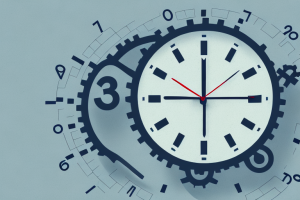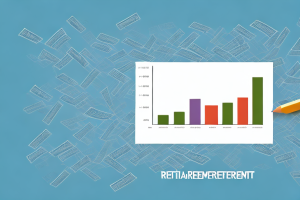At age 53, it’s not uncommon to experience feelings of fatigue and low energy levels. This can be frustrating, especially if you have always been an active and vibrant individual. However, it’s essential to understand that fatigue is a common part of the aging process, and there are various factors that can contribute to it. In this article, we will delve into the different aspects that may be causing your tiredness and discuss ways to combat fatigue effectively.
Understanding the Normal Aging Process and Fatigue
As we age, our bodies undergo various changes that can affect our energy levels. One primary factor is the natural slowing down of our metabolism, which occurs as a result of declining hormone levels. Our bodies don’t function as efficiently as they used to, making us feel tired more easily. Additionally, age-related muscle and bone loss can lead to decreased physical stamina, further contributing to fatigue.
Another factor that can contribute to fatigue in the aging process is the decrease in the quality and quantity of sleep. As we get older, it is common to experience changes in sleep patterns, such as difficulty falling asleep or staying asleep throughout the night. This can result in a lack of restorative sleep, leaving us feeling tired and fatigued during the day. It is important for older adults to prioritize good sleep hygiene practices, such as maintaining a regular sleep schedule and creating a comfortable sleep environment, to help combat fatigue.
Exploring the Impact of Hormonal Changes on Energy Levels
Hormonal changes play a significant role in energy levels, particularly in individuals approaching and going through menopause. As women enter perimenopause and menopause, estrogen and progesterone levels decline, leading to a range of symptoms, including fatigue. These hormonal fluctuations can disrupt sleep patterns and make it challenging to get a restful night’s sleep, resulting in increased tiredness throughout the day.
Additionally, hormonal changes during menopause can also affect metabolism. As estrogen levels decrease, the body’s metabolic rate may slow down, leading to weight gain and decreased energy levels. This can further contribute to feelings of fatigue and lethargy.
Furthermore, hormonal imbalances can impact mood and mental well-being, which can indirectly affect energy levels. Fluctuating hormone levels can lead to mood swings, irritability, and feelings of depression or anxiety. These emotional changes can drain energy and make it difficult to maintain a consistent level of productivity and motivation throughout the day.
The Role of Stress and Anxiety in Feeling Tired at 53
Stress and anxiety are often present in our daily lives, and they can have a profound impact on our energy levels. As you reach your 50s, you may have a myriad of responsibilities, including work, family, and financial obligations. These concerns can weigh heavily on your mind and leave you feeling mentally and physically exhausted. It’s important to find healthy coping mechanisms, such as meditation or engaging in activities you enjoy, to help alleviate stress and prevent it from draining your energy.
Additionally, hormonal changes that occur during this stage of life can contribute to feelings of fatigue. As women approach menopause, fluctuations in estrogen and progesterone levels can disrupt sleep patterns and lead to increased feelings of tiredness. It’s important to prioritize self-care during this time, including getting regular exercise, maintaining a balanced diet, and practicing good sleep hygiene.
Furthermore, certain medical conditions that are more common in middle age, such as thyroid disorders or chronic pain conditions, can also contribute to fatigue. These conditions can affect the body’s energy levels and make it more difficult to feel rested and rejuvenated. If you are experiencing persistent fatigue, it is important to consult with a healthcare professional to rule out any underlying medical causes and develop an appropriate treatment plan.
Uncovering the Effects of Poor Sleep Quality on Fatigue
Quality sleep is essential for overall well-being, but it becomes even more crucial as we age. Unfortunately, many individuals in their 50s experience difficulty falling asleep or staying asleep throughout the night. Factors such as hormonal changes, medical conditions, and lifestyle habits can all contribute to poor sleep quality. Lack of restful sleep not only leaves individuals feeling tired but also affects concentration, mood, and general productivity. Developing a bedtime routine, creating a sleep-friendly environment, and seeking professional medical advice can help improve sleep and combat fatigue.
One of the main effects of poor sleep quality on fatigue is decreased cognitive function. When we don’t get enough quality sleep, our ability to think clearly, make decisions, and solve problems is significantly impaired. This can have a negative impact on our work performance, academic success, and overall quality of life.
Additionally, poor sleep quality has been linked to an increased risk of developing chronic health conditions. Research has shown that individuals who consistently experience inadequate sleep are more likely to develop conditions such as obesity, diabetes, cardiovascular disease, and even certain types of cancer. This highlights the importance of prioritizing sleep and taking steps to improve sleep quality.
How Sedentary Lifestyle Contributes to Feeling Tired at 53
A sedentary lifestyle, characterized by prolonged sitting or little physical activity, can exacerbate feelings of fatigue. Regular exercise is vital for maintaining energy levels and promoting overall good health. Engaging in aerobic activities, such as walking, swimming, or cycling, can increase heart rate and circulation, providing a much-needed energy boost. Additionally, exercise stimulates the release of endorphins, the body’s natural mood elevators, which can combat fatigue and improve mental well-being.
Furthermore, a sedentary lifestyle can lead to weight gain and obesity, which can further contribute to feelings of tiredness. Excess weight puts additional strain on the body, making everyday tasks more exhausting. By incorporating regular physical activity into your routine, you can not only manage your weight but also increase your stamina and endurance.
Moreover, sitting for long periods can negatively impact your posture and musculoskeletal health. Poor posture can lead to muscle imbalances, back pain, and decreased flexibility, all of which can contribute to feelings of fatigue. Engaging in activities that promote good posture, such as yoga or Pilates, can help alleviate these issues and improve overall energy levels.
Dietary Factors: Are You Eating Right to Combat Fatigue?
Proper nutrition is paramount in combating fatigue and maintaining energy levels. Consuming a well-balanced diet rich in fruits, vegetables, lean proteins, and whole grains provides the necessary nutrients to support bodily functions and prevent deficiencies that may contribute to tiredness. Avoiding processed foods, excessive caffeine, and sugary snacks can also help stabilize energy levels and avoid the crash and burn effect often associated with poor dietary choices.
In addition to these dietary factors, staying hydrated is also crucial for combating fatigue. Drinking an adequate amount of water throughout the day helps to maintain proper bodily functions and prevent dehydration, which can lead to feelings of tiredness and low energy. It is recommended to consume at least 8 glasses of water per day, or more if engaging in physical activity or in hot weather.Furthermore, incorporating certain superfoods into your diet can provide an extra boost of energy. Foods such as spinach, kale, and other leafy greens are rich in iron, which is essential for carrying oxygen to the cells and preventing fatigue. Additionally, foods like nuts, seeds, and fatty fish contain omega-3 fatty acids, which have been shown to improve brain function and reduce mental fatigue.By paying attention to your dietary choices, staying hydrated, and incorporating energy-boosting superfoods, you can optimize your nutrition to combat fatigue and maintain high energy levels throughout the day.
The Link Between Chronic Illnesses and Fatigue at Age 53
Chronic illnesses, such as diabetes, heart disease, or autoimmune disorders, can significantly impact energy levels at any age, including 53. These conditions often cause various symptoms, including fatigue and weakness. The management of chronic illness through proper medical care and lifestyle adjustments can improve energy levels over time. It’s crucial for individuals with chronic illnesses to work closely with their healthcare providers to develop personalized strategies for minimizing fatigue.
Managing Medications: Could They Be Causing Your Fatigue?
It’s important to consider the potential side effects of medications when assessing the causes of fatigue. Certain medications, such as antidepressants, antihistamines, or blood pressure drugs, can have fatigue as a common side effect. Talking to your doctor about any recurring symptoms of tiredness and exploring alternative medications with fewer side effects may help alleviate fatigue.
The Influence of Mental Health on Energy Levels in Your 50s
Mental health conditions, such as depression or anxiety, can significantly impact energy levels. When experiencing these conditions, individuals often report feeling constantly drained and lacking motivation. It’s important to seek appropriate mental health support, including therapy or counseling, to address the underlying causes of fatigue and restore energy levels.
Hormone Replacement Therapy: Can It Help Boost Your Energy?
For individuals struggling with fatigue due to hormonal changes, hormone replacement therapy (HRT) may be an option worth exploring. HRT involves taking estrogen or a combination of estrogen and progesterone to alleviate symptoms associated with menopause, including fatigue. This approach should be discussed with a healthcare professional to determine if it’s the right choice based on individual health needs and potential risks and benefits.
Practical Tips for Reducing Fatigue and Increasing Vitality at 53
There are several practical steps you can take to combat fatigue and increase vitality at age 53. First and foremost, prioritize self-care and ensure you are getting enough restful sleep each night. Establishing a consistent sleep routine, practicing relaxation techniques, and creating a peaceful sleep environment can significantly improve energy levels. Additionally, incorporating regular exercise, eating a balanced diet, managing stress, and engaging in activities that bring you joy can boost both physical and mental energy.
Seeking Medical Help: When Is It Time to See a Doctor?
If feelings of fatigue persist despite lifestyle modifications, it may be time to consult a healthcare professional. Chronic fatigue can be a symptom of underlying medical conditions, such as anemia, thyroid disorders, or sleep disorders. A thorough evaluation by a physician can help identify the root cause of fatigue and guide appropriate treatment options.
Exploring Alternative Therapies for Boosting Energy Levels
In addition to traditional medicine, several alternative therapies may help combat fatigue and boost energy levels. Acupuncture, massage therapy, herbal remedies, and mindfulness practices have been found to be beneficial for some individuals. It’s essential to consult with qualified practitioners to ensure the safety and effectiveness of these alternative approaches.
The Importance of Regular Exercise in Combating Fatigue
Regular exercise plays a critical role in reducing fatigue and increasing overall vitality. Engaging in physical activity enhances blood flow, oxygenation, and releases feel-good endorphins, all of which contribute to improved energy levels. Whether it’s walking, jogging, swimming, or yoga, finding activities that you enjoy and integrating them into your routine can help combat fatigue at age 53.
In conclusion, feeling tired at age 53 is a common experience, but it doesn’t have to define your daily life. By understanding the normal aging process, managing hormonal changes, addressing stress and anxiety, improving sleep quality, maintaining an active lifestyle, adopting a well-balanced diet, managing chronic illnesses, and seeking appropriate medical attention when needed, you can regain your energy and vitality. Remember, it’s never too late to prioritize your well-being and take steps towards a more energized and fulfilling life.



